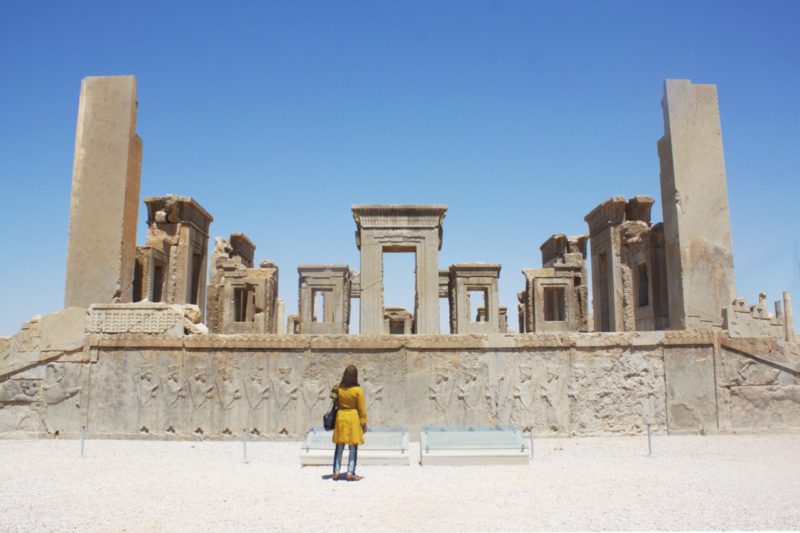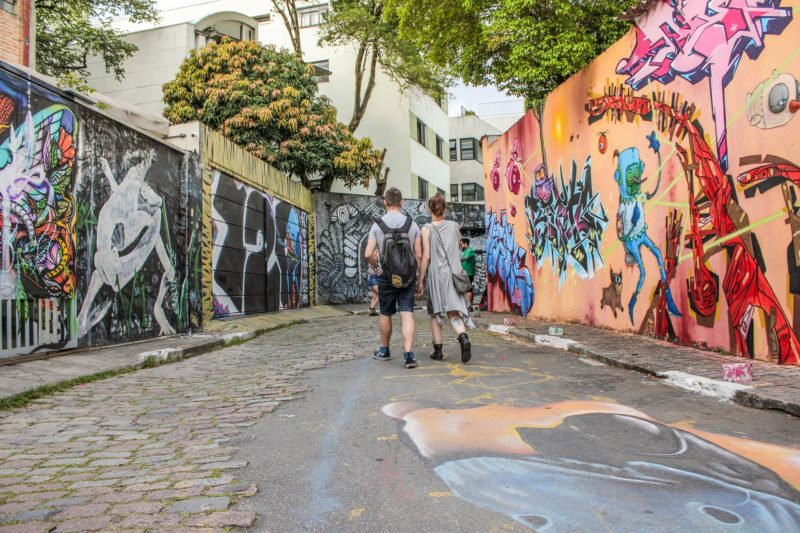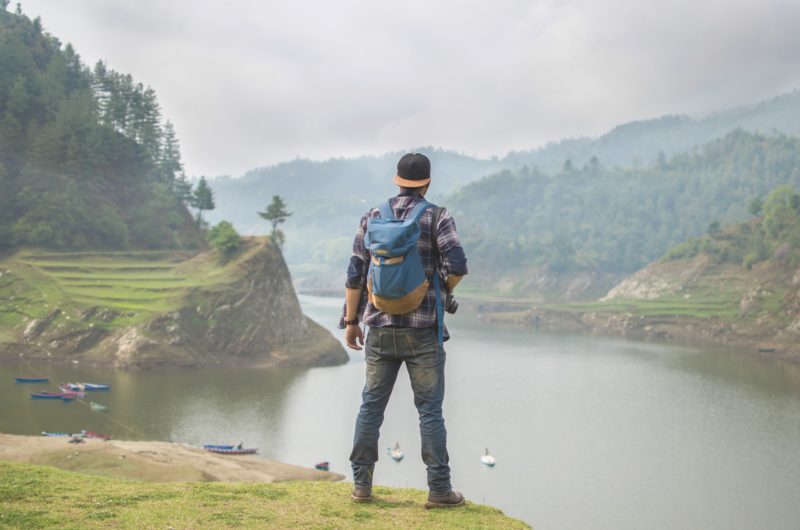Imagine living a life where the world is your office and you get to choose your office view. You wake up in the morning, pour yourself a steaming cup of locally-sourced coffee, and settle down to work, all against the backdrop of a stunning Mediterranean coastline, in a bustling coworking space in New York City or from your beachside apartment in Jamaica. This is the essence of a digital nomad lifestyle, a fusion of work and wanderlust that has captured the imaginations of many in our hyper-connected world.
Definition of the Digital Nomad Lifestyle
The term “digital nomad” refers to individuals who leverage technology to perform their work remotely, untethered from a fixed geographical location. Armed with laptops, they often work from coworking spaces, coffee shops, libraries, or wherever they can find a good internet connection. This mobility allows them to explore new places and cultures while maintaining their careers or businesses. A digital nomad could be a freelancer, a remote worker, or a business owner, as long as their work is location-independent.
Important Skills for a Digital Nomad
Being a successful digital nomad requires a unique set of skills that blend professionalism, self-discipline, and adaptability. Here are some key skills you should cultivate:
- Digital Skills: Your ability to troubleshoot a faulty internet connection, protect your digital data, or master the latest collaboration tools can be the difference between a productive day and a disastrous one. As a digital nomad, your laptop and reliable internet aren’t just conveniences, they’re your lifeline.
- Communication: Can you express yourself clearly through the written word, send messages that bridge the gap of miles and time zones, and make your presence felt in a virtual meeting?
- Problem-Solving: Inevitably, challenges will arise, from navigating a new city to dealing with delayed flights and difficult clients. How you respond to these roadblocks can significantly impact your journey.
- Self-discipline: Can you commit to meeting deadlines even when the lure of a bustling foreign market or a pristine beach beckons?
- Cultural Adaptability: As a digital nomad, you’ll be moving between different countries and cultures. Understanding and respecting these cultural differences is a passport to deeper connections and enriching interactions. It is about learning and growing with each new culture you encounter.
- Language Skills: Knowing more than one language can be incredibly helpful when you’re moving around the world. Even if you’re not fluent, familiarizing yourself with the local language is a sign of respect and can facilitate more meaningful interactions with locals.
- Networking: Building relationships can open many doors, whether it’s for personal enjoyment or professional opportunities.
- Financial Management: Can you manage your finances, convert currencies, calculate taxes, and make sure your budget aligns with your lifestyle?
- Health and Wellness: Keeping yourself healthy is crucial, and it can be challenging while constantly on the move. Understanding how to maintain a balanced diet, exercise routine, and mental health regime on the road is important.
Preparing for the Digital Nomad Life
Evaluate your Skills and Interests
Start by assessing your current skill set and identifying any gaps that need to be filled for remote work. Consider your interests and passions to determine the type of work that aligns with your goals. If you’re interested in becoming a digital nomad but don’t yet have the necessary skills to work remotely, Nomads Skillshare can help you get started. It’s an online platform that offers courses in a variety of digital skills, from web design to content creation, while providing scholarships for local communities to learn from their courses.
Develop a Strong Online Presence
Building an online presence is crucial for digital nomads. Create a professional website or portfolio to showcase your work and skills. Optimize your online profiles on platforms like LinkedIn to attract potential employers or clients.
Network with Other Digital Nomads

Other digital nomads’ experiences and insights can be invaluable in navigating the transition and providing guidance. You can join digital nomad groups on Facebook (simply type “digital nomads” and the name of the location you want to visit to find relevant groups) or attend coworking events. You can also contact an organization like Nomads Giving Back which connects people who share similar passions for travel, remote work, community involvement, volunteering, or skill-sharing.
Remote Work or Online Business?
One of the crucial decisions to make when preparing for the digital nomad life is choosing between remote work and starting an online business. Each option has its own set of advantages and considerations. Let’s explore both possibilities to help you make an informed decision.
Remote Work
Remote work involves being employed by a company or organization while having the flexibility of choosing your work location. Can your role be accomplished remotely? Before quitting your current job, try to negotiate a remote work agreement with your current employer. If not possible, websites like Remote.co, FlexJobs, and Upwork offer a wide range of remote job listings across different industries.
Here are some key points to consider:
- Stability and steady income: Remote work provides a stable income stream, as you are typically employed by a company or work as a freelancer with ongoing projects.
- Fewer risks and responsibilities: You’re not responsible for the success or failure of the entire company
- Benefits: Most full-time remote jobs come with benefits like health insurance, retirement plans, and paid time off.
Online Business
By selling your skills directly to clients, you can construct a diverse and flexible workload. Platforms dedicated to freelancers can be a great launching point, enabling you to build a client base and gain experience with remote work. But remember, freelance work demands strong skills in self-promotion and client management.
Consider the following aspects:
- Independence and autonomy: Running an online business provides you with complete independence and autonomy over your work. You have the freedom to choose your niche, set your own prices, and make business decisions.
- Scalability and income potential: Online businesses have the potential to scale rapidly and generate significant income. With the right strategies and marketing efforts, you can reach a global audience and increase your earning potential.
- Creativity and innovation: Starting an online business allows you to explore your creativity and pursue your passions as you’re not limited by corporate decisions.
- Personal Fulfillment: There’s a certain satisfaction in building something from scratch and seeing it succeed.
The Importance of Reliable Access to Technology and the Internet
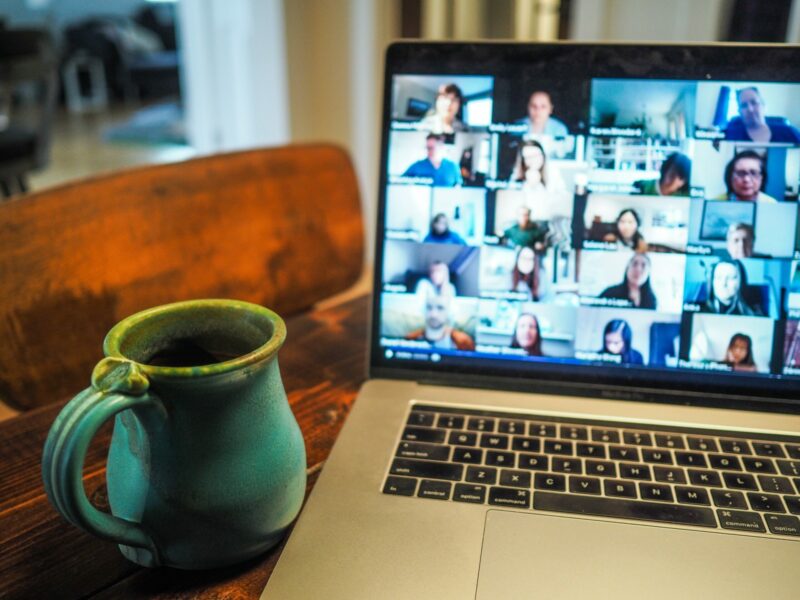
Strong Equipment:
- Laptop: Choose a reliable and powerful laptop that can handle your work requirements. Look for features such as a fast processor, ample storage, and long battery life. Consider lightweight options for portability.
- Backup devices: It’s wise to have backup devices like a smartphone or tablet that can serve as secondary workstations in case of technical issues with your primary device.
- Accessories: It’s important to have a comfortable working environment which can include a laptop stand, an ergonomic keyboard, a mouse, or noise-canceling headphones to enhance your productivity.
Stable Internet Connection:
- High-speed internet: Opt for a high-speed internet connection with reliable bandwidth. This ensures smooth video conferences, fast file transfers, and quick access to online resources.
- Mobile data backup: Have a backup plan in place, such as a mobile data plan or a portable Wi-Fi device, to use in case of internet outages or unreliable connections. This ensures that you can continue working even in challenging situations. Companies like Airalo offer eSIMs (digital SIM cards) to be connected anywhere in the world the second you land.
- VPN (Virtual Private Network): A VPN is essential for protecting your privacy and security while working remotely. It encrypts your internet connection, preventing unauthorized access to your data. Use a reputable VPN service to maintain confidentiality and online safety.
- Local Wi-Fi networks: Be cautious when connecting to public Wi-Fi networks. Use secure and trusted networks or consider using a personal hotspot to maintain the security of your data.
Financial Planning
Managing your finances strategically can provide stability and peace of mind, enabling you to enjoy the benefits of a location-independent lifestyle. Here are some key considerations for financial planning:
- Create a budget: Start by assessing your current financial situation and creating a budget that accounts for your income, expenses, and savings goals. Consider your anticipated expenses as a digital nomad, such as accommodation, transportation, and healthcare.
- Open an online bank account: Open an online bank account targeted to travelers like Wise or Revolut. It will allow you to have access to different currencies and the fees to pay or withdraw money abroad will be significantly lower than with a traditional bank.
- Track your expenses: Monitoring your expenses closely is crucial for maintaining financial stability. Use budgeting apps like NomadWallet or spreadsheets to track your spending and identify areas where you can cut back or optimize.
- Build an emergency fund: Set aside a portion of your income to build an emergency fund. This fund acts as a safety net in case of unexpected expenses, periods of low income, or emergencies.
- Consider insurance: Evaluate your insurance needs as a digital nomad. Travel insurance, health insurance, and liability insurance are essential to protect yourself from unforeseen circumstances or medical emergencies. SafetyWing and World Nomads are great companies to check out.
Global Tax Considerations and Potential Legal Issues
Just as each country has its unique charm, each also comes with its unique tax laws and potential legal issues. It’s important to understand your tax obligations both in your home country and in the countries you’ll be residing in as a digital nomad. Some countries like Brazil, Thailand, or Estonia offer special visas for digital nomads, but these can come with specific legal stipulations.
Navigating this labyrinth of international tax law can be daunting, and professional advice can be invaluable. Just as you wouldn’t set sail without understanding the maritime rules, don’t embark on your digital nomad journey without a grasp on your legal and tax responsibilities.
Practical Aspects of Digital Nomadism
Choosing your First Digital Nomad Destination
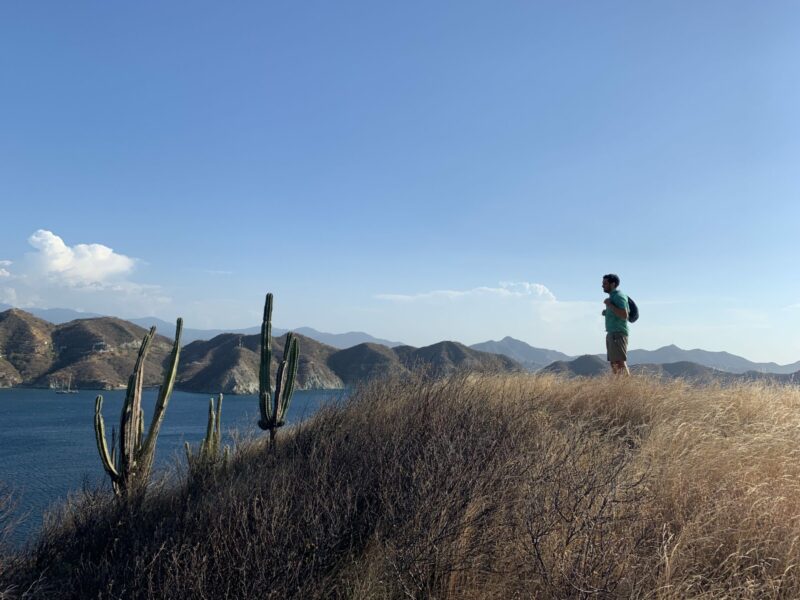
Choosing your first digital nomad destination is like selecting the opening scene of your nomadic narrative. A mix of practicality and personal preference can guide your choice. Consider the following factors:
- Cost of Living: Consider your budget and the destination’s cost of living. Countries in Southeast Asia and Central America, for instance, often offer more affordable lifestyles than Western Europe or North America.
- Safety: Check the safety of the potential locations. Websites like the U.S. Department of State’s travel advisories can provide helpful insights.
- Internet Connectivity: Reliable, high-speed internet is crucial for remote work. Research the internet quality and availability in your potential destinations.
- Visa Regulations: Investigate the visa requirements and the length of stay permitted in your chosen destination.
- Time Zone: If your work requires synchrony with a team, select a location with a time zone that aligns with your work schedule.
- Digital Nomad Community: Some cities have thriving digital nomad communities, which can be helpful for networking and companionship.
- Healthcare: Look into the quality of healthcare in the area and ensure you can get appropriate travel health insurance.
- Sustainability: Less crowded places or off-the-beaten-path locations can reduce the strain on popular tourist areas, helping to preserve them for future generations.
Don’t worry if the first destination you choose isn’t the perfect match for you. Over time, you will learn what environments suit you best, and your selection criteria will evolve with your experiences. Nomad List can also be a great resource to help you choose your next destination by giving you information about the cost of living, the weather, or the safety in thousands of cities around the world.
The Importance of Travel and Health Insurance
Ensuring your journey is as smooth as possible involves preparing for potential bumps in the road. Both travel and health insurance are vital for a digital nomad (and it’s crucial to read the fine print to understand what’s included!).
Travel insurance can cover flight cancellations, lost luggage, theft, and other unexpected travel hiccups.
Having health insurance ensures that you can receive medical care without incurring huge out-of-pocket expenses. Consider policies tailored to digital nomads, with global coverage and flexibility. Make sure your plan covers not only emergency treatments but also routine health care. Some policies also cover emergency evacuation, which could be life-saving in severe cases.
Once again, SafetyWing and World Nomads are great companies to check out.
Accommodation Options
As a digital nomad, your home could be a jungle bungalow in Bali, a downtown apartment in Porto, or even a cabin in the mountains of Colorado. When choosing the right accommodation, factors such as budget, comfort, internet speed and proximity to necessary amenities like grocery stores, coworking spaces, or healthcare facilities should be taken into account. Websites and apps like Airbnb, Booking.com, and Agoda offer a plethora of short-term rentals catering to various budgets and preferences but we advise you to keep an eye out for accommodation options with green certifications and credentials, as they prioritize energy efficiency, water conservation, and waste reduction, among other eco-friendly practices.
Alternatively, you might consider co-living spaces. These facilities, often purpose-built for digital nomads, offer not only comfortable living arrangements but also a community of like-minded individuals, encouraging collaboration and networking. Outpost in Bali, Niu in Mexico City, and Nine Coliving in Tenerife, Spain are popular co-living spaces that provide excellent facilities and vibrant communities.
Managing Work and Travel

Mastering the art of juggling work and travel is crucial for a successful digital nomad lifestyle. Contending with different time zones can be a challenge, especially when coordinating with teams back home or meeting deadlines. Digital tools like World Time Buddy or Every Time Zone can be helpful to manage this aspect.
Maintaining productivity can also be tricky amidst the allure of new destinations like the bustling markets of San Cristobal de Las Casas or the tranquil beaches of Da Nang. Establishing a routine is essential – consider allocating specific hours for work and exploration. Self-discipline becomes your ally here. It may be enticing to spend an entire day exploring the cute streets of Lisbon, but it’s essential to remember the primary reason you embarked on this journey: to harmoniously blend the thrill of travel with the fulfillment of meaningful work.
Moreover, coworking spaces, such as WeWork or local ones like Dojo in Bali, provide a focused environment and can help maintain a work schedule. Similarly, productivity apps like Trello, Asana, or Slack can keep you organized and connected with your team.
Social Aspects of Digital Nomadism
Maintaining Relationships while Traveling
The bonds you form serve as anchors, providing a sense of stability and belonging. As a digital nomad, maintaining relationships requires conscious effort but is vital for emotional well-being. Thanks to technology, staying connected with loved ones is more manageable than ever. Regular FaceTime calls, WhatsApp messaging, and even hosting virtual movie nights on platforms like Teleparty can help bridge the geographical gap.
However, the nomadic lifestyle can sometimes be accompanied by a sense of loneliness. To combat this, immerse yourself in the local culture, look for meetups on platforms like Meetup or Facebook groups (e.g., Digital Nomads or Digital Nomad Around The World), and join digital nomad communities such as Nomad List. Co-working spaces also often have their communities and events.
Ways to Integrate into Local Cultures and Communities
One of the true joys of the digital nomad lifestyle, is the opportunity to become a global citizen, assimilating into a variety of local cultures and communities. Making an effort to learn the local language, even just a few phrases, can significantly enhance your experience. Apps like Duolingo or Busuu can assist in this regard. For emergency situations, real-time translation tools can be invaluable. Google Translate, for instance, includes a conversation mode for instant speech translation, which is particularly handy during emergencies. Other apps like DeepL or Papago are good options. It’s always wise to download the language packs you’ll need in advance, as these apps can work offline, ensuring you have translation support even when internet access is spotty.
While you’re out there chasing adventures, you can also make a difference by joining local environmental initiatives. Here are a couple of ways to contribute. Organizations like Nomads Giving Back can also help you to give back to local communities through meaningful events.
Understanding a culture can simply start by asking questions. While this may appear obvious, genuine insights come from individuals who have personally encountered it. So, venture out and engage in conversations with the locals!
Staying Mentally Healthy

Just as you take steps to maintain your physical health during your nomadic journey, caring for your mental health is equally vital. Regular physical activity, a balanced diet, and sufficient sleep can all contribute to your mental well-being.
Mindfulness practices such as meditation and yoga can also be incredibly beneficial, offering a grounding presence amidst the constant flux of the digital nomad life.
Furthermore, ensure you set aside time for self-reflection and relaxation. Whether that’s reading a book, unwinding on a beach, or simply enjoying a quiet moment with a cup of tea, downtime is not a luxury but a necessity for recharging your mental and emotional batteries.
If you’re feeling overwhelmed or facing mental health issues, don’t hesitate to seek professional help. Many therapists offer online sessions through platforms like BetterHelp or Talkspace, making their services accessible no matter where your travels take you.
Conclusion
In essence, the digital nomad lifestyle is more than a way of working; it’s a way of living. It’s an opportunity to craft a life that’s not confined to a cubicle or tethered to a single location, but one that’s as expansive and versatile as your aspirations. It’s a journey that calls for self-discipline, adaptability, and a spirit of adventure. It’s an invitation to become a global citizen, to write a narrative that transcends geographical boundaries and weaves together strands of diverse experiences.
Frequently Asked Questions (FAQs)
What are the Job Options for Digital Nomads?
As a digital nomad, your career is as boundless as your wanderlust. From freelance writing, graphic design, and software development, to remote consulting, virtual teaching, and digital marketing – the opportunities are vast. Ultimately, any profession that can be performed from a laptop with internet access can be suitable for a digital nomad.
Is it Necessary to Quit my Current Job to Become a Digital Nomad?
Not necessarily. Some individuals negotiate remote work arrangements with their current employers, allowing them to maintain their job while enjoying the benefits of location independence. Alternatively, you can explore freelance or contract work opportunities.
How to Stay Connected to the Internet?
In the digital nomad realm, a stable internet connection is your lifeline. WiFi-friendly cafes, coworking spaces, and accommodations with good internet are typically your go-to spots. Investing in a reliable portable WiFi hotspot device can also be a lifesaver, while local SIM cards can provide data when WiFi isn’t available.
What are Some of the Best Countries for Digital Nomads?
The world is brimming with countries that welcome digital nomads. Thailand, with its affordable cost of living, friendly locals, and beautiful landscapes, is a popular choice. Estonia, with its innovative digital nomad visa, and Spain, known for its quality of life, are also strong contenders. Bali in Indonesia and Medellin in Colombia are also beloved among nomads for their vibrant communities and cultural richness. But don’t be afraid to also explore less popular (but beautiful) places like Albania, Brazil, or Turkey!
How to Maintain a Healthy Work-Life Balance as a Digital Nomad?
Maintaining work-life balance as a digital nomad involves setting boundaries between work and leisure. Schedule your work hours and stick to them, resist the temptation to work from your bed, and make time to explore and enjoy your surroundings. Remember, one of the reasons you chose this lifestyle is to experience the world beyond the confines of a traditional office.
How to Stay Fit While Being a Digital Nomad?
Staying fit while being a digital nomad can be a challenge given the frequent changes in location, schedule, and available amenities. However, with some creativity and commitment, you can certainly maintain a healthy lifestyle. Here are some tips.
Can you Recommend some Blogs, Podcasts, and Books?
For deep dives into the digital nomad existence, look no further than blogs like The Blog Abroad and The Professional Hobo. Podcasts like Zero To Travel and That Remote Life offer engaging discussions and interviews. Books such as Deep Work by Cal Newportand, The Power of Habit by Charles Duhigg, and Minimalism: Live A Meaningful Life by Joshua Fields Millburn and Ryan Nicodemus provide in-depth insights and practical advice.











